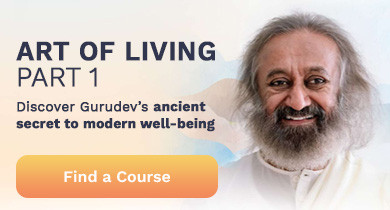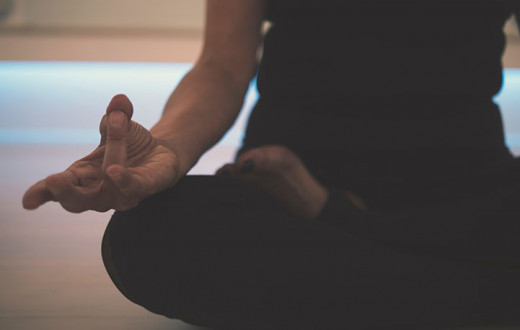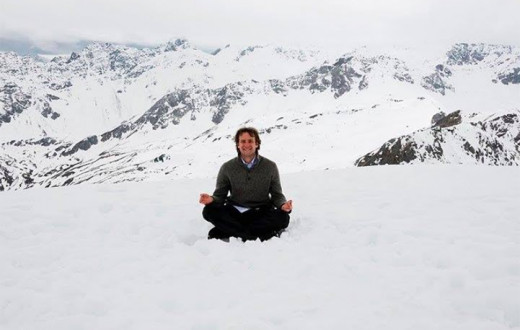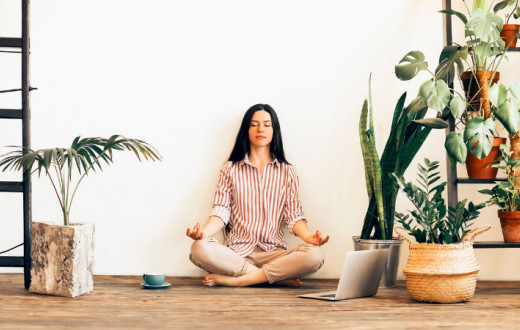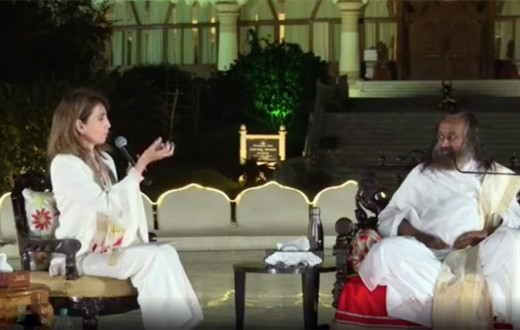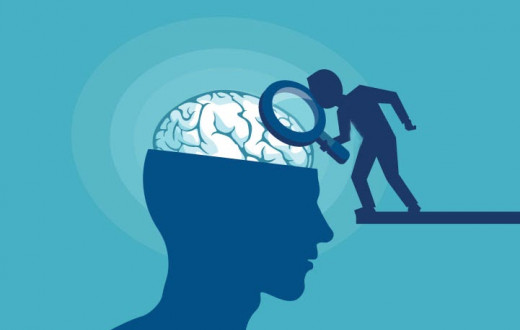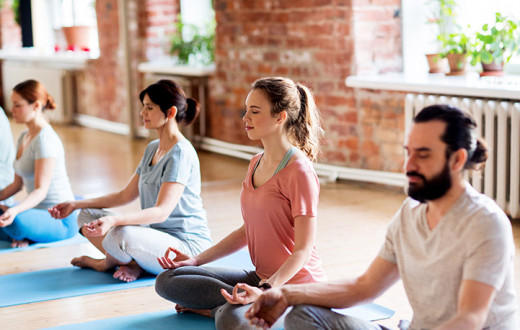By Elizabeth Herman
Be serene, content, and strong by practicing patience and understanding that time heals all wounds. This seven-minute video will explain how.
Does waiting bother you? In Western culture, fast food restaurants promote the instant satisfaction of every craving. In fact, studies show that the mere presence of fast food advertising can increase impatient behaviors in Americans. But expecting everything to happen right away may be a bad habit. It could cause you weakness, frustration, stress, and pain, in both your mind and body.
During a crisis, impatience and restlessness become bigger problems. You may be wondering how long improvements will take. So will owners of small and large businesses, people out of work, and every affected individual. But patience can bring you resilience.
Meditation is an art that both requires and develops patience and contentment. Art of Living founder and spiritual master Gurudev Sri Sri Ravi Shankar says, “See, waiting is something everybody has to do. If a woman has conceived a baby, she has to wait nine months for the baby to come out. If a farmer plants a seed, he has to wait for the seed to grow into a plant. A horticulturist has planted a fruit tree. He can’t say, ‘Tomorrow I want fruit.’ You have to wait until the fruit comes.”
In the following short video of a talk that Gurudev recently gave, he points out, “Life teaches you in many ways that you have to wait. You’ve written an exam. You can’t say, ‘I want to know the result today!’ You have to wait for the result to come. Correct?”
Waiting is a virtue
There’s such a difference between natural timings for events and our expectations. “Nature compels you to wait. Now, what’s our tendency? Our mind wants everything right away, with a quick fix. We want results right away. This restlessness makes us miserable and we make others miserable at home.”
Especially during the crisis of a pandemic, he says, “This is a time when we’re all locked in the house, around the globe. We have to learn how to wait with a little patience. You know, waiting can cause frustration, but the same waiting can be turned into a meditative experience. Then you become more creative, more alert.”
But, he warns, “If you can’t wait then you become emotional, upset, agitated, and you make a mess of the whole situation. Let’s practice waiting. The world isn’t going to fall on your head. We’re in such a big hurry. We want everything quickly, right away. Where are you going?”
“This lockdown is going to help you cool down, calm down, sit back, and think about your own life. We’re busy getting the accessories to life, not really putting attention on life itself. We’re taking care of our garment but not our skin. We’re taking care of our car, but not our body. Isn’t it so? In the rat race of life, we’ve forgotten the central core of existence, which is life itself!”
Patience makes good company
Guiding listeners toward compassion, kindness, and accepting delay, Gurudev urges us “to sit back, think, and learn to have patience. Imagine someone is so impatient. Would you like to be with them? Suppose you’re expected to deliver something, and the person who’s on the receiving end is so impatient. How would you like that? Suppose you’re preparing some nice dishes at home. You’re making pudding at home, and the children are so impatient; they want it right away. You can’t give them half-baked things, right?”
“I’d like you all to do an experiment at home,” he says. “You know what? If anyone wants anything, make them wait for five minutes or ten minutes. See, if you have to go to the bathroom and the washroom is busy with somebody else there, you have to wait. Nature makes you wait, right?
Of course, there’s a limit for waiting. It isn’t complacent; it isn’t being lethargic. Patience isn’t lethargy. We shouldn’t mistake them for one another. Impatience and restlessness aren’t efficient, either. So let’s ponder on this. Let’s learn to wait.”
In meantime, you can learn new tools to further your ability to be patient and transform your life in a meaningful way. Click on the image below to learn more.
Waiting for enlightenment
To illustrate, here’s another example in a classical story: “Rishi Narada was a globetrotter. And this sage Narada was known to everybody and he was supposed to know what was going to happen in the future also. He was walking and he found a sage who was sitting and meditating under a tree. He went to the sage and asked him, ‘What is it that you want? What are you doing?’
The meditator said, ‘I’m meditating. I want enlightenment.’
So Narada said, ‘Good luck.’
Then he kept moving and the sitting sage said, ‘By the way, since you’ve come I’d like to ask you if you know. Would you tell me how many more days it will take for me to get enlightened?’
Narada looked at him and said, ‘Not in this lifetime. You’ll have to take another 3 lifetimes to get enlightened.’
That gentleman was so angry; he threw his mala, his rosaries, and said, ‘Enough is enough. I have done this tapas all my life. I have done all my life this penance. No more. Three more lives? No way,’ he said.
Well, Rishi said, ‘Well, I can’t say anything more. Bye,’ and he left. When Narada went a little further, he found another young boy who was sitting and meditating. He asked him, ‘What do you want?’
The young boy said, ‘I want nothing but now that you’re asking, you tell me when I will get enlightened.’
So Rishi Narada looked at him and looked at the tree that was behind him. He told the boy, ‘You may have to take as many lifetimes as there are leaves on that tree,’” narrated Gurudev.
Embracing serenity
“The boy was overjoyed. He said, ‘Only one tree? On this planet, there are so many trees, billions of trees. I’m done. It’s done,’ he said. He started dancing. He was overjoyed, saying, ‘Only this much. This is very easy. I’ll do that.’
You know, this resolution, to take things with a good, positive spirit is very necessary,” he says. “When we’re frustrated and agitated, waiting is impossible. But when we’re calm and serene, it’s no big deal to wait. We have patience.
Patience is a virtue. When you embrace waiting, either with challenge or meditation, you increase your patience.”
You can continue to grow and become stronger. Learn patience with Beyond Breath - A FREE Breath & Meditation Online Session With a Live Instructor. Best of luck and wishing you well during this challenging time!
Elizabeth Herman writes, offers writing support to clients, teaches, and volunteers for a better world. She has a PhD in Rhetoric, Composition and Literature. Find her on Facebook or Twitter.

